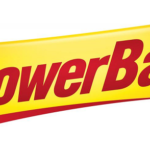When you compete in your sport, you will, in fact, be competing in two competitions. The obvious competition is the one that occurs against your opponent. The more important competition, though, is the mental game that you play inside your head against yourself. Here is a simple reality: If you don’t win the mental game, you won’t win the competitive game.
Contrary to what you may think, at whatever level in which you’re competing, the technical and physical aspects of your sport don’t usually determine the winner. Athletes who compete at the same level are very similar technically and physically. For example, is Tiger Woods better technically than Phil Mickelson? Is Roger Federer in better physical condition than Rafael Nadal? In both cases, the answer is no. So, on any given day, what separates Justine Henin from Venus Williams, Tom Brady from Peyton Manning? The answer lies in who wins the mental game.
Whenever I talk to athletes, I ask them what aspect of their sport seems to have the greatest impact on how they perform. Almost unanimously they say the mental part. I then ask how much time they devote to their mental preparation and their answer is almost always little or no time.
Despite its obvious importance, the mental side of sport is most often neglected, at least until a problem arises. The mistake athletes make is that they don’t treat their mental game the way they treat the physical and technical aspects of their sport. You don’t wait to get injured before you do physical conditioning, do you?. You don’t develop a technical flaw before you work on your technique, do you? Of course not. You do physical and technical training to prevent problems from arising. You should approach the mental game in the same way.
Prime Sport Alert! is Born
The Prime Sport Alert! e-newsletter was created to assist you in just this process, ensuring that mentally you are your best ally rather than your worst enemy. Prime Sport Alert! will focus on the essentials of the mental game and give you the mental skills you need to achieve your goals.
The information and tools I will share with you in Prime Sport Alert! is not magic dust and will not produce miracles. You would not expect increases in strength by lifting weights a few times or an improvement in technique by working on it every once in a while. The only way to improve any area, whether physical, technical, or mental, is through commitment, hard work, and patience.
The information, techniques, and exercises in Prime Sport Alert! are designed to be “user-friendly;” easy to understand and apply directly to your sport. My goal is for you to read Prime Sport Alert! and go out tomorrow and use it immediately to improve your sports performance.
Prime Sport Alert! has several goals:
- Provide clear and understandable information about winning the mental game of sport.
- Offer simple and practical techniques that you can easily use to raise your performances to a new level.
- Enable you to perform your best in your sport consistently when it really counts.
Prime Sport Alert! for all Sports
Prime Sport Alert! is written to benefit to athletes in all sports and at all levels of ability. Whether you are 18 years old or 45 years old, compete in individual or team sports, or a novice or a professional, the information and tools provided by Prime Sport Alert! can be applied to any sport setting.
A goal of writing Prime Sport Alert! is to use a language that all athletes can relate to and that you can easily translate into the specific vocabulary of your sport. A difficulty with this process is that sports do not always share a common language. For example, athletes in some sports, such as football, baseball, and tennis, “play” their sport, while others, such as figure skating, gymnastics, and track and field, “perform” in their sport. Similarly, some sports, such as soccer and baseball, compete in “games,” while other sports, such as swimming and cycling, compete in “races,” “meets,” or “events.” To simplify communicating my ideas in Prime Sport Alert!, I will maintain a consistency of language by using “perform” and “competition” to describe athletes’ participating in their sport. I’m confident that you will have little difficulty applying my ideas to the sport in which you participate.
What is Prime Sport?
One of the most popular phrases in sport psychology is peak performance. Athletes typically think of peak performance as performing their best, as being at the top of their game. That sounds good, doesn’t it? Who wouldn’t want to achieve peak performance? And when I came out of graduate school, peak performance was what I wanted athletes to achieve.
But as I became more experienced as a consultant and a writer, I began to appreciate the power of words and how important it is that the words I use are highly descriptive of what I want to communicate. I decided that peak performances was not descriptive. I saw several problems with peak performance:
- A peak is very small, so you can’t stay there long. Would you be satisfied if you had one good competition and several poor ones?
- Once the peak is reached, there’s only one way to go—down!—and, and as with most peaks, the drop is usually precipitous. Have you experienced those big swings in performance, where one week you’re totally “on your game” and the next you’re completely off it?
- You may arrive at the peak too early or too late, missing an opportunity for success. Have you felt the frustration of lost opportunity because you weren’t on your game when you needed to be?
So I needed a phrase that accurately described what I wanted athletes to achieve. I struggled for several years unable to find such a phrase until one day I had one of those rare meetings of readiness and luck. Walking through the meat section of a supermarket I saw a piece of beef with a sticker that read Prime Cut. I had an “aha” experience; I knew I was on to something. I returned to my office and looked up “prime” in the dictionary. It was defined as “of the highest quality or value.” I had finally found the phrase, “Prime Performance,” which I believed was highly descriptive of what I wanted athletes to achieve.
I define Prime Performance, or in this case, Prime Sport, as “performing at a consistently high level under the most challenging conditions.” There are two essential words in this definition. First, “consistently.” I’m not interested if you can have only one or two great performances and then some poor ones; that is not enough to be truly successful. I want you to be able to train and compete at a high level day in and day out, week in and week out, month in and month out, all season long. This means performing with minimal ups and downs instead of the large swings in performance that are so common among athletes. Second, “challenging.” I’m not impressed if you can perform well under ideal conditions against an easy opponent when you’re on top of their game. Anyone can do that. What makes the great athletes great is their ability to perform their best under the worst possible conditions against a tough opponent when they’re not on their game.
A question you may ask is, Where does Prime Sport come from? Though I’ll be focusing on its mental contributors, the mind is only one necessary part of Prime Sport. You must also be at a high level of physical health including being well-conditioned, well-rested, eating a balanced diet, and free from injury and illness. Prime Sport also isn’t possible if you’re not technically and tactically sound. If you’re physically, technically, tactically, and mentally prepared, then you will have the ability to achieve Prime Sport.
Now here’s a question for you: Have you ever experienced Prime Sport? Let me describe what it’s like:
- Effortless: It’s comfortable, easy, and natural.
- Automatic: The body does what it knows how to do and there’s no mental interference.
- Sharpened Senses: seeing, hearing, and feeling everything more acutely than normal.
- Time shift: Everything slows down enabling you to react more quickly.
- Effortless focus: You’re totally absorbed in the experience.
- Boundless energy: Fatigue is simply not an issue.
- Prime integration: The physical, technical, tactical, and mental are working together to perform your best.





